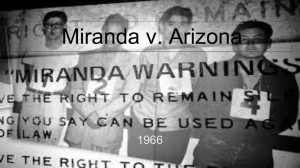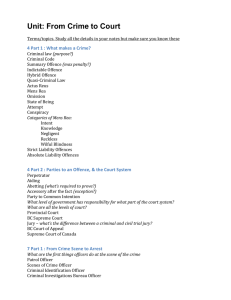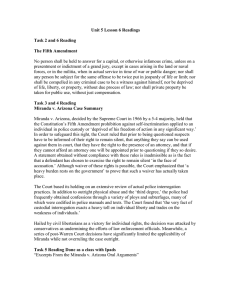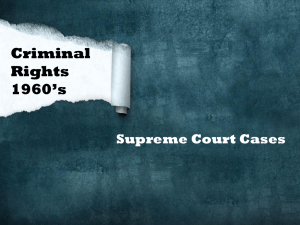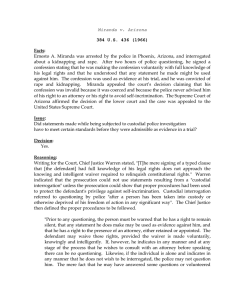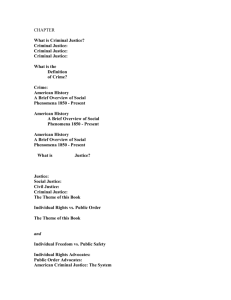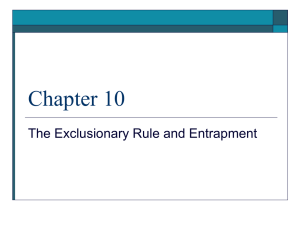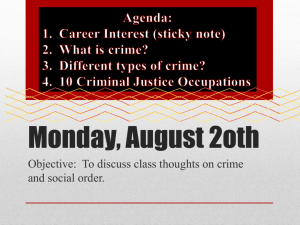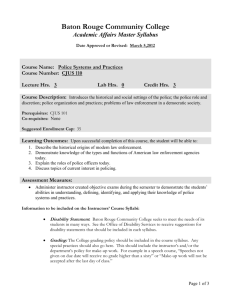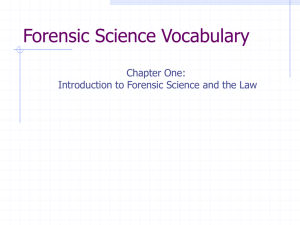Ch. 12: Criminal Justice Process
advertisement
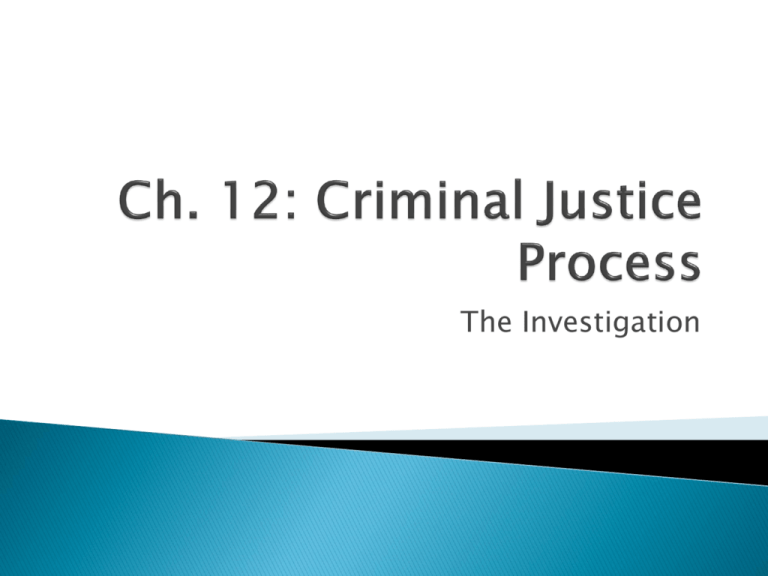
The Investigation Right to remain silent Right to an attorney No interrogation should take place before they read Are a result of the US Supreme Court case Miranda v. Arizona Statements given before Miranda Rights inadmissible due to the exclusionary rule Statements given before a defendant is read his Miranda Rights are admissible if the defendant repeats them after the warnings are given. Failure to read them does not affect the validity of an arrest There is a public safety exception clause ◦ Ex. If the police suspect someone has a bomb and they ask them where they are and he/she tells them. Statements are allowed in court Can be freed at many points throughout the CJ process Provides the defendant with the right to remain silent The judge issues a search warrant The police carry out the search The judge decides if the evidence was legally obtained The prosecutor brings the charges against the defendant Prohibits use of illegally seized evidence in court The exclusionary rule is designed to punish police. A court order issued by a judge or magistrate, giving police the power to search a person or to enter a building to for and seize items related to a crime. In an emergency situation, they are not required. Is the reasonable belief that a person has committed a crime Evidence that justifies an officer in stopping and questioning someone believed to be involved in criminal activity. Less evidence than probable cause. Includes searching a bookbag at school Is a sworn statement of facts and circumstances To take a person suspected of crime into custody A court-ordered document authorizing the police to arrest an individual on a specific charge Not required in every arrest Using commonly held notions of what typical drug couriers look like in order to be able to question a person without establishing individual suspicion. The inappropriate use of race as a factor in identifying people who may break or who may have broken the law. To confirm information To “pat down” or search the outer clothing of someone Rule that generally prohibits the use of illegally obtained evidence. (4th,5th, and 6th amend.) Any items that are illegal to possess To question a witness or suspected criminal Giving evidence and answering questions that would tend to subject one to criminal prosecution. There isn’t an explicit right to privacy in the US, however the Bill of Rights was created to protect certain aspects of privacy. (Beliefs, unreasonable searches, self incrimination, etc) Includes invasions by private individuals Deadly force can be used when he or she attempts to escape and/or presents a significant threat of death or serious bodily harm to the officer or others. Probable cause doesn’t cover searches conducted by parents. Miranda warning is not a seizure under the fourth amendment but an arrest is.


